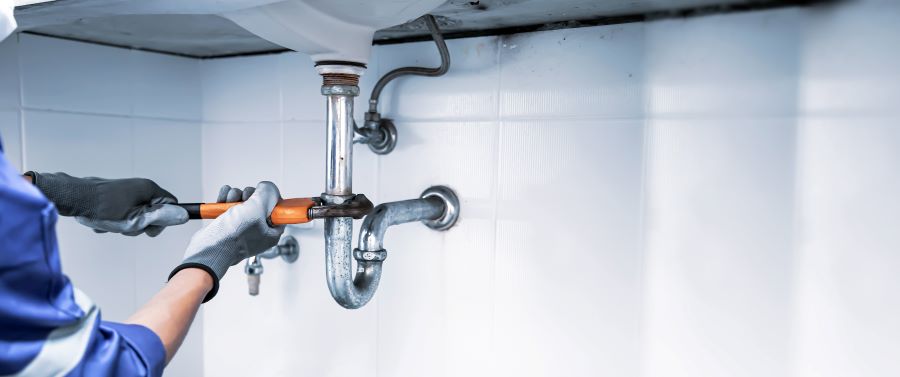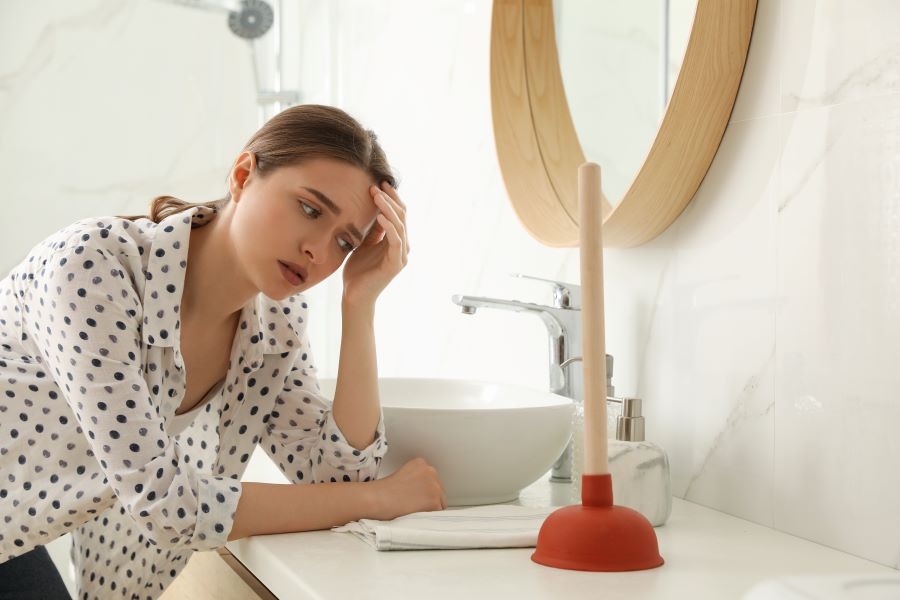Maintaining a smooth and efficient drainage system is crucial to ensure every household's clean and comfortable living environment. Blocked drains are a common problem that can cause a lot of inconvenience and, if not addressed promptly, can lead to more severe plumbing issues.
Finding effective blocked drain solutions is the first step towards preventing these unwanted scenarios. This article will explore some of the best practices and preventive measures to keep your drains clear and fully functional. Read on to learn more!
1. Regular cleaning
Regular cleaning is one of the simplest yet most effective ways to prevent drain blockages. Make it a habit to clean your sink stoppers, bathroom drains, and kitchen sinks weekly. Removing hair, soap scum, and other debris can go a long way in preventing blockages.
Here are practical steps and tips for regular drain maintenance:
• Boiling water treatment: Regularly flushing your drains with boiling water can help dissolve grease, soap scum, and other buildups. Do this weekly for maintenance. However, take extra precautions with boiling water if you have PVC pipes, as the high temperature can soften or damage some types of plastic piping. For these, use hot water from the tap instead.
• Baking soda and vinegar solution: Pour a half cup of baking soda down the drain, then follow it with a half cup of white vinegar. The combination will fizz and help break down grime and buildup. After letting it sit for an hour, flush the drain with hot water to clear the residues.
• Salt, baking soda, and boiling water: A mixture of salt and baking soda can be more effective for unyielding grime. Mix half a cup of table salt with half a cup of baking soda. Pour the mixture down the drain. Let this mixture sit for 10-20 minutes, then flush the drain with boiling water. The salt acts as a scouring agent, enhancing the cleaning action.
• Dish soap and hot water: You can use dish soap if you have drains susceptible to grease buildup, like kitchen sinks. Add a few tablespoons of liquid dish soap to a pot of boiling water. Pour the mixture down the drain slowly to dissolve and flush away grease.
• Enzyme cleaners: If you want a non-toxic and environmentally friendly option, consider enzyme cleaners. These cleaners use natural bacteria to break down organic matter from your pipes without harming the plumbing. Follow the instructions on the product, as the application can vary.
Meanwhile, a plunger can also be helpful for clogs and for regular maintenance to dislodge any starting blockages. Use a flat-bottomed plunger for sinks and a flange plunger for toilets. Doing so can improve water flow and prevent future clogs.
2. Use strainers
Installing strainers in your sinks, showers, and tubs can catch hair, food particles, and other debris before they enter your drainage system. These small and affordable tools can be one of the most effective blocked drains solutions, reducing the need for more drastic measures down the line.
3. Washing with hot water
If you can access hot water for washing dishes, use it instead of cold tap water. Higher temperatures can prevent clogging by dissolving fatty substances, oils, and grease that accumulate on the inner walls of pipes. This method is particularly effective in kitchen sinks where greasy residue is more common.
4. Avoid chemical cleaners
While it may be tempting to use chemical cleaners to clear blockages, these can often cause more harm than good. Over time, chemical cleaners can corrode your pipes, leading to leaks and other damage. Select natural solutions, like a mixture of baking soda and vinegar, followed by hot water, to clear your drains without damaging your plumbing.
5. Professional drain cleaning
Consider hiring a professional to clean your drains for persistent problems or as a preventive measure. Professional plumbers have the tools and expertise to thoroughly clean and inspect your gutters, ensuring they are clear of potential blockages.

6. Be mindful of what goes down the drain
Prevention is always better than cure. Be mindful of what you dispose of down your drains. Avoid flushing down items that don't break down quickly, such as fats, oils, grease, coffee grounds, and non-biodegradable items. Educating everyone in your household about what should and should not go down the drains can prevent many blockage issues.
7. Routine maintenance
Regular maintenance checks by a professional can help identify potential issues before they become serious problems. Scheduling an annual inspection can ensure your drainage system remains in top condition year-round.
Conclusion
Keeping your drains clear and functioning requires a combination of good habits, preventive measures, and occasional professional intervention. By following these tips, you can ensure that your home remains free from blocked drains' inconvenience and potential hazards. Remember, taking proactive steps today can save you from the hassle and expense of dealing with clogged drains in the future.





